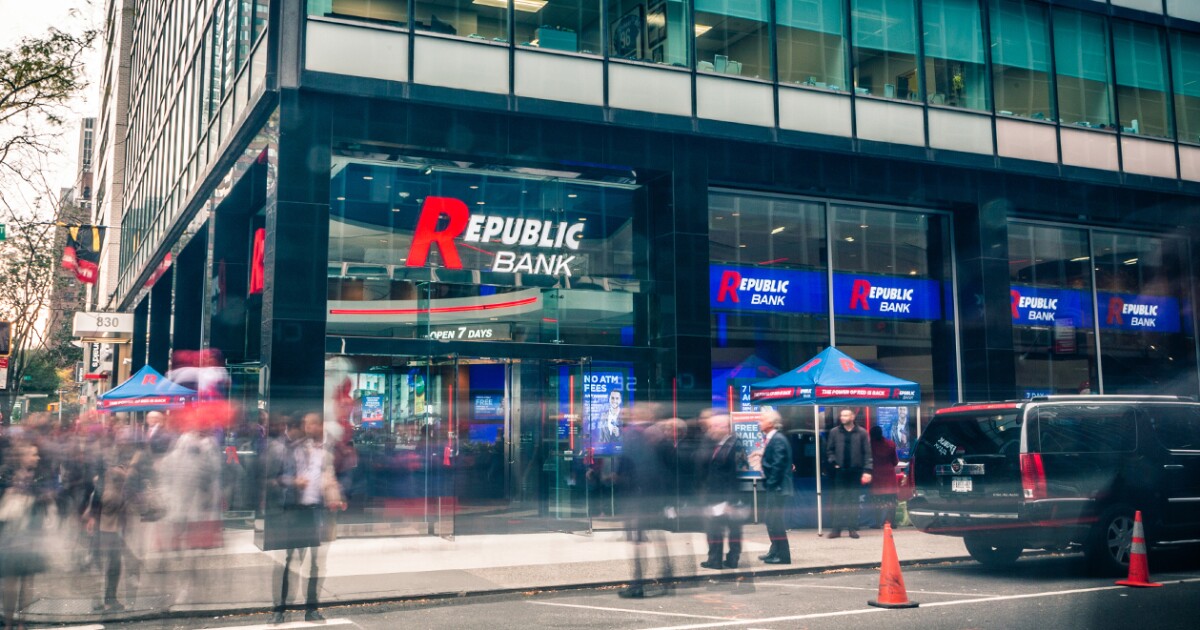
Republic First Bank was shuttered by its state regulator and taken over by the Federal Deposit Insurance Corp. on Friday, ending the Philadelphia-based bank's yearslong struggle to maintain adequate capital amid a bitter
Fulton Bank in Lancaster, Pennsylvania, will assume substantially all of Republic First's $6 billion of assets and $4 billion of deposits, according to a statement from the FDIC.
Republic First's 32 branches, which are spread across Pennsylvania, New Jersey and New York, will open for business on Monday morning — or Saturday morning for locations that normally operate on the weekend — as Fulton Bank branches, the agency announced.
Republic First's parent company, Republic First Bancshares, has been dealing with internal strife since late 2021, when a group of activist investors sought to
Problems for the bank compounded just six weeks later when a second investor group
The bank attempted to raise
A subsequent capital infusion came together
Before it failed, the bank's
Brian Graham, a partner at Klaros Group, said the bank had been insolvent for at least a year and a half, but regulators seemed to have tried to give Republic First time to pursue a sale or investment.
"Once those efforts proved to be fruitless, it was inevitable that the regulators would say, 'Enough already,' and shut this thing down, as they probably should have a while ago," Graham said.
Republic First's underwater bond troubles mirrored those at First Republic Bank and Silicon Valley Bank, which both notoriously collapsed last spring, Graham said. He added that based on unrealized losses, dozens of banks across the country are insolvent or nearly there.
"This dynamic is not limited to Republic First," Graham said. "It's playing out in a whole bunch of other bank balance sheets, even as we speak. This disconnect between the economic reality of how much capital a bank really has and the stated regulatory capital level … s troubling."
Graham added that banks with an outsized amount of unrealized losses aren't an appealing investment target.
"Banks that are insolvent, unless they get bailed out by some magical shift in interest rates, it's just a matter of time," Graham said.
As is customary in a bank failure, the FDIC was appointed receiver for Republic First after its failure. The sale to Fulton Bank will result in a $667 million loss for the Deposit Insurance Fund.
In its announcement, the agency said the sale to Fulton Bank would be the least costly outcome for the fund.
Republic Bank's demise is the first of this year. The last bank to fail was
Catherine Leffert contributed to this story.



